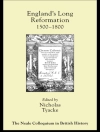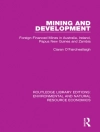Empire and Belonging in the Eurasian Borderlands engages with the evolving historiography around the concept of belonging in the Russian and Ottoman empires. The contributors to this book argue that the popular notion that empires do not care about belonging is simplistic and wrong.
Chapters address numerous and varied dimensions of belonging in multiethnic territories of the Ottoman Empire, Imperial Russia, and the Soviet Union, from the mid-nineteenth to the late twentieth centuries. They illustrate both the mutability and the durability of imperial belonging in Eurasian borderlands.
Contributors to this volume pay attention to state authorities but also to the voices and experiences of teachers, linguists, humanitarian officials, refugees, deportees, soldiers, nomads, and those left behind. Through those voices the authors interrogate the mutual shaping of empire and nation, noting the persistence and frequency of coercive measures that imposed belonging or denied it to specific populations deemed inconvenient or incapable of fitting in. The collective conclusion that editors Krista A. Goff and Lewis H. Siegelbaum provide is that nations must take ownership of their behaviors, irrespective of whether they emerged from disintegrating empires or enjoyed autonomy and power within them.
Содержание
Preface
List of Illustrations
Introduction: Belonging in the Eurasian Borderlands
1. Making Minorities in the Eurasian Borderlands: A Comparative Perspective from the Russian and Ottoman Empires
Part One: Negations of Belonging
2. Bloody Belonging: Writing Transcaspia into the Russian Empire
3. The Armenian Genocide of 1915: Lineaments of a Comparative History
4. ‘Do you want me to exterminate all of them or just the ones who oppose us?’: The 1916 Revolt in Semirech’e
5. ‘What Are They Doing? After All, We’re Not Germans’: Expulsion, Belonging, and Postwar Experience
Part Two: Belonging via Standardization
6. Developing a Soviet Armenian Nation: Refugees and Resettlement in the Early Soviet South Caucasus
7. Reforming the Language of Our Nation: Dictionaries, Identity, and the Tatar Lexical Revolution, 1900–1970
8. Speaking Soviet with an Armenian Accent: Literacy, Language Ideology, and Belonging in Early Soviet Armenia
Part Three: Belonging and Mythmaking
9. Making a Home for the Soviet People: World War II and the Origins of the Sovetskii Narod
10. Dismantling ‘Georgia’s Spiritual Mission’: Sacral Ethnocentrism, Cosmopolitan Nationalism, and Primordial Awakenings at the Soviet Collapse
11. New Borders, New Belongings in Central Asia: Competing Visions and the Decoupling of the Soviet Union
Conclusion
Notes
Contributors
Index
Об авторе
Krista A. Goff is Assistant Professor of History at the University of Miami. Lewis H. Siegelbaum is the Jack & Margaret Sweet Emeritus Professor in History at Michigan State University.












